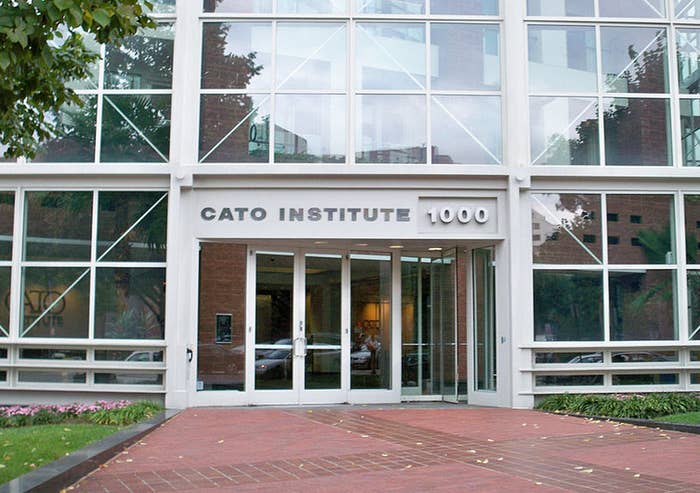
Two Cato Institute scholars came to the defense of the NSA's domestic surveillance program Wednesday in a Chicago Tribune op-ed, drawing outrage from libertarians baffled that such work would be promoted by their ideology's premiere think tank.
In the op-ed, titled, "NSA surveillance in perspective," Roger Pilon and Richard Epstein, both of whom are associated with Cato, argue that the security provided by the NSA program outweighs any violation of privacy it might cause, which they say is "trivial."
"The critics miss the forest for the trees," they write. "Yes, government officials might conceivably misuse some of the trillions of bits of metadata they examine using sophisticated algorithms. But one abuse is no pattern of abuses. And even one abuse is not likely to happen given the safeguards in place."
The op-ed, which was also posted to Cato's website, prompted a fierce debate on Facebook about whether the scholars' article undermined the think tank and its libertarian mission.
Adam Thierer, a former Cato employee, was among the critics.
"Generally speaking, most libertarians are pretty skeptical of the highly deferential 'just-trust-your-government' attitude on display in that essay," Thierer told BuzzFeed. "I doubt the authors speak for most others at Cato and they certainly don't speak for the broader movement, which is deeply concerned about the sweeping scope of our government's surveillance powers."
David Boaz, Cato's executive vice president, said, "Each of our scholars speaks for himself or herself. You'll find a number of Cato scholars' commentaries on this topic on our homepage and our blog."
Cato fellow Julian Sanchez weighed in with a couple of articles of his own, saying the U.S. needs to rethink the Fourth Amendment now that the programs have come to light and suggested that those who claim to have "nothing to hide" and thus nothing to fear may not be as safe as they believe.
The dispute reflects a broader divide among libertarians in the debate surrounding the NSA's domestic spying program and the man who revealed it, Edward Snowden. While most agree that the implications of the NSA's broad surveillance program are troubling — and even terrifying — libertarian members of Congress have hesitated to heap praise on the source of the leak.
